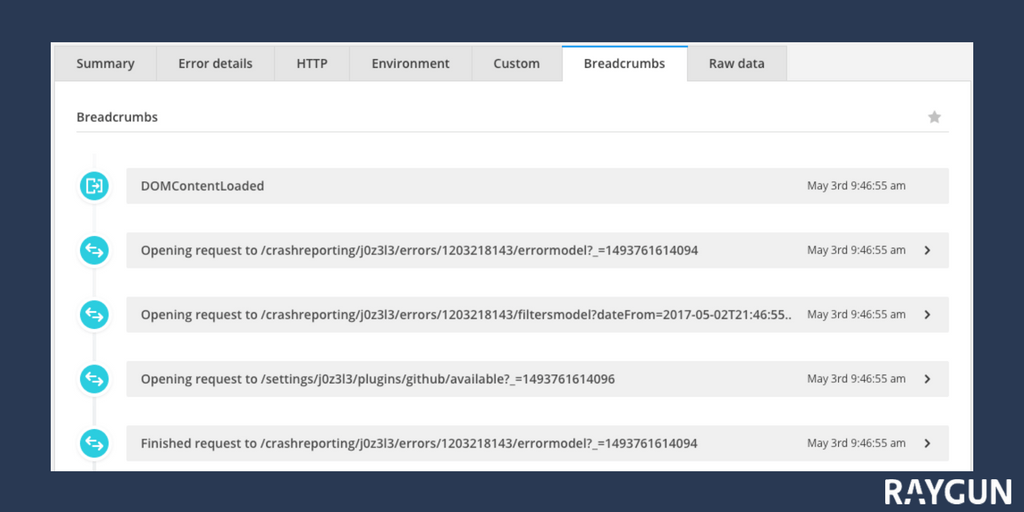Introducing new Crash Reporting error group filters UI: Surface error data faster
Posted Dec 4, 2017 | 2 min. (380 words)Whether you need to drill down into the cause of an error or discover how customers received your latest version release, Crash Reporting filters give your team a quick and easy way to surface the data you need.
Until recently, the search and filter function may have been hard to navigate. We realize you need to access this data quickly and fuss-free. The Crash Reporting filters are the best way to sort through the data Raygun provides for your team, so we wanted to help you navigate this data as efficiently as possible.
How it works
If you have Real User Monitoring enabled, you’ll be used to the search and filter functionality – it’s the same. To get started, you’ll see the new filter bar at the top of your Crash Reporting dashboard.
Here’s how the filters look inside the Crash Reporting dashboard.
How to use Crash Reporting filters
Over the last few months since the original UI release for filters, developers have been using the filtering options to sort through data and isolate problems. (For the filters available for Real User Monitoring, this article has more details.)
Here’s a quick rundown of the new filter options, and how you might like to apply them:
- Host: Is the URL of where the code is on the web, similar to URL, but just the base of the URL (e.g., raygun.com)
- Machine name: The unique identifier of the computer where the code is hosted
- Assigned user: The member of your team who has been delegated to resolve the error
- Assigned team: The Raygun team (e.g., owners/users, etc.) who are assigned to resolve the error
- Not assigned: If the error has *not* been assigned to a user or team, i.e., waiting to be allocated to a team member
- Resolved by the user: The team member who marked the error as resolved
Developers can also invite others to share the same filtering options, just share the URL with your team member.
Teams can learn more about the filters in the Raygun documentation. Do you have questions about the new Crash Reporting filters? Get in touch with a team member.
You may also like:
How to architect your software errors for easier reporting
Discover how OpenWater’s CTO is using custom tagging to reduce error noise

